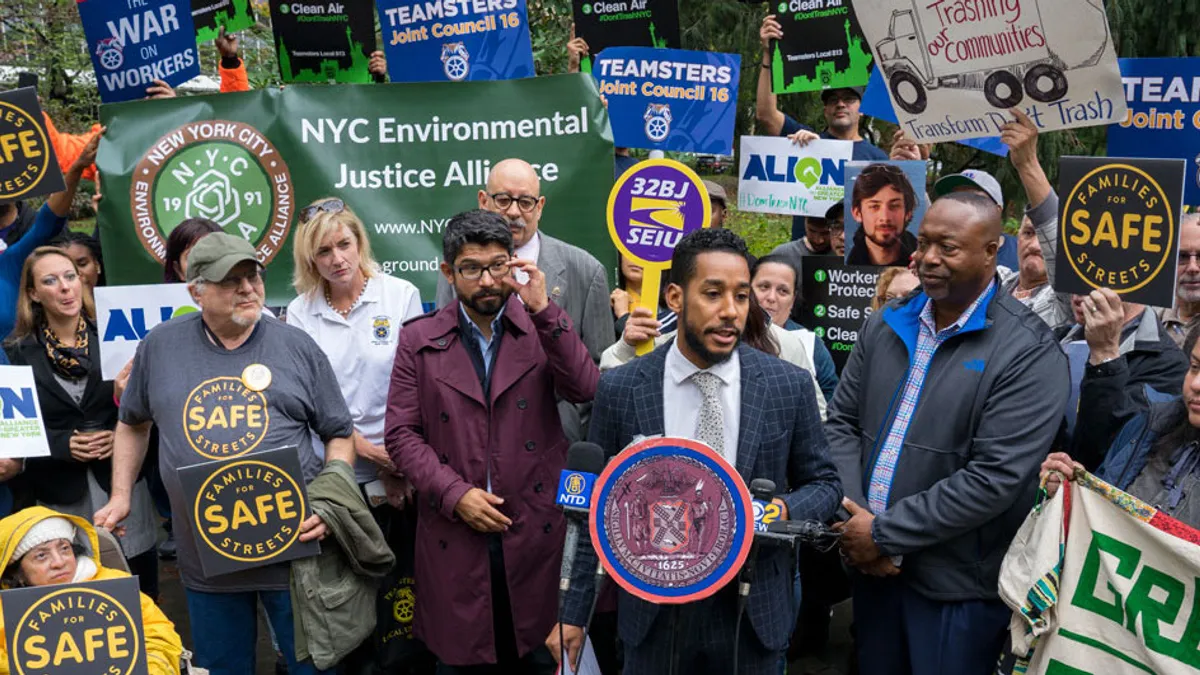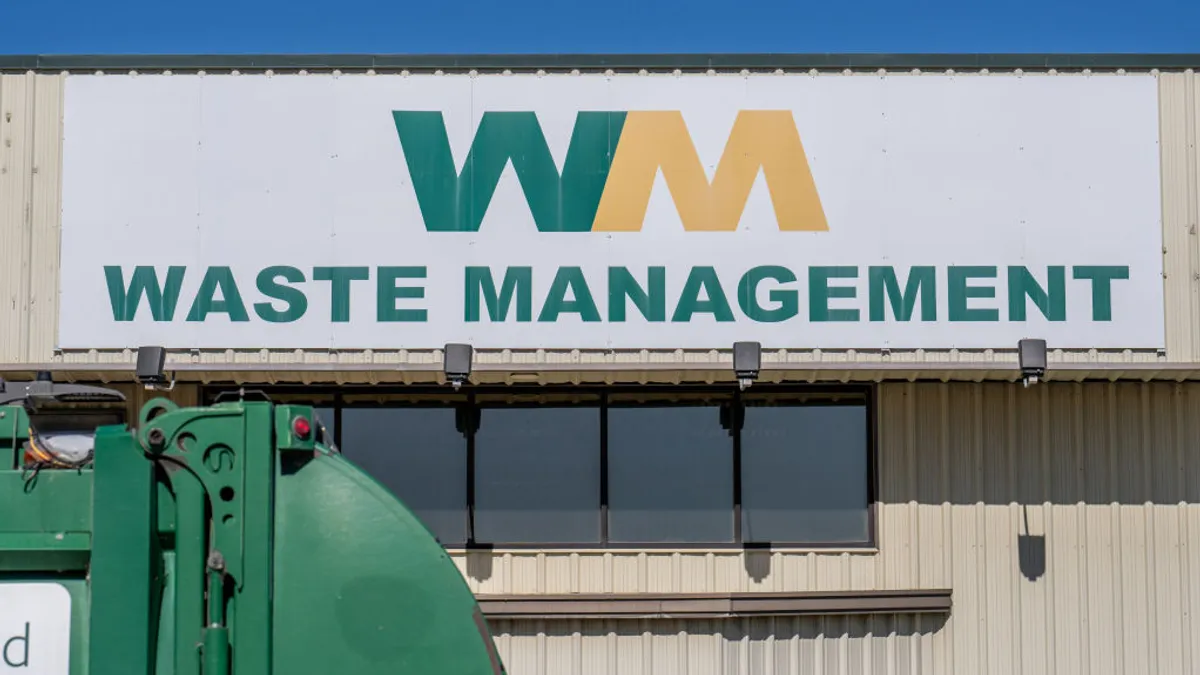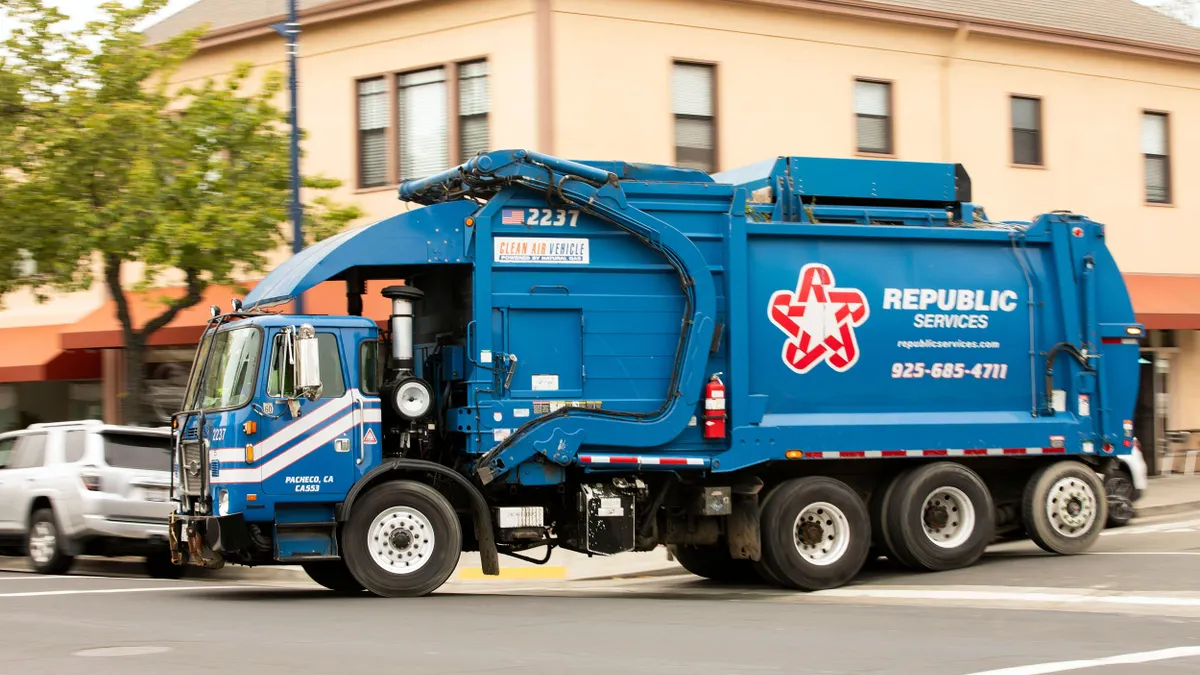UPDATE: Nov. 21, 2019: Mayor Bill de Blasio has signed all four commercial waste reform bills passed by the New York City Council on Oct. 30. The Department of Sanitation anticipates RFPs for commercial waste zone contracts will be released in May 2020.
New York's controversial commercial waste system — panned by critics as a dangerous "Wild West" and praised by supporters as open market competition at its finest — is now destined for its biggest shake-up in decades after the passage of major zoning legislation.
Intro. 1574-A gained momentum in recent weeks before its passage, despite opposition from some corners of the local industry that continued to the end. Ultimately, a dogged campaign by labor and environmental advocates – with backing from Mayor Bill de Blasio's administration and New York City Council leadership – successfully secured the 34-14 vote.
“Many people told me today would never happen, that the system was too complex to be meaningfully reformed, that the politics were too difficult. And until today history had proven those naysayers right," said Council Member Antonio Reynoso, the bill's primary champion, speaking from the council floor yesterday afternoon. "However, I knew that we had justice on our side, that ours was the righteous cause. We’ve persisted for six straight years to reach today’s vote and I am gratified to say to you today that the righteous cause has prevailed.”
Once signed into law by de Blasio, the bill will authorize the city's Department of Sanitation (DSNY) to divide New York into a framework of 20-plus zones available for competitive solicitation. Each zone will have up to three companies. There will also be five citywide contracts for containerized service. No company will be able to operate in more than 15 zones. Bidders will be required to meet numerous safety and environmental standards in order to win the 10-year deals.
These changes come amid ongoing attention to a history of long routes, fatal crashes, uneven pricing, and wage and safety issues for workers. While industry representatives have sought to clarify that New York already has fewer companies left than the 90 often cited, and say the current system could still be reformed, momentum has not been in their favor. After passing a long-delayed "waste equity" bill to reduce transfer station capacity in select neighborhoods last year, council leadership has been keen to seal the deal with this more ambitious proposal.
“For too long the private carting industry has been able to operate without adequate safeguards to ensure air quality and street safety," said Speaker Corey Johnson yesterday. "Waste hauling vehicles are needlessly driving through our communities increasing air pollution that negatively impacts public health and that emits greenhouse gas emissions that contributes [sic] to the climate crisis and emergency that our city, country and world is facing."
Numerous other supporters, including the Transform Don't Trash Coalition, heralded the bill's passage as a historic moment for environmental justice and labor rights. International Brotherhood of Teamsters General President James P. Hoffa even weighed in, applauding Joint Council 16 and others for "putting an end to the 'race to the bottom' in the city's sanitation industry."
The council also passed three other bills with commercial waste implications. Most notably, the Business Integrity Commission's authority will now be officially expanded – after some debate last year over whether the expansion was necessary – beyond its foundational corruption focus.
“I am proud that the New York City Council passed the BIC safety legislation, adding traffic safety to BIC’s mission. As part of this new mandate, BIC can consider the traffic safety records of its licensees, registrants and applicants when making licensing decisions. Additionally, BIC will be able to establish rules to help make the trade waste industry in New York City safer," said BIC Commissioner Noah Genel in a statement to Waste Dive.
Opponents react
While Wednesday's outcome didn't come as a surprise, the gravity of what is in store appeared to be setting in for many of the plan's detractors.
"We are more than disappointed that this misguided law will destroy dozens of local companies, many with 50 years or more of service, and displace hundreds of workers (mostly people of color and many second-chance [workers] making good money for hard and thankless work)," said Kendall Christiansen, executive director of anti-zoning group New Yorkers for Responsible Waste Management, in a pre-vote statement. "Just like when Los Angeles eliminated competition as the basis for this essential service, no choice, price increases and declining service will become very real to New York’s businesses and industries, with questionable environmental benefits."
The National Waste & Recycling Association (NWRA), which has also been opposed via a local chapter, framed its comments around transition uncertainties to a "governmentally-controlled" zone system.
"[O]ur eyes and ears will now shift to the process involving how the city actually goes about implementing and administering its new commercial waste zone collection system. There is so much yet undefined – and so much work left to do for this coming commercial waste system change – that it is premature to conjecture what the process will yield in terms of our industry’s response," said Steve Changaris, vice president of the Northeast region, who pledged to remain engaged in the process.
Laborers Local 108 also sought to keep itself in the conversation, while criticizing legislative negotiations. "We look forward to working with [DSNY] Commissioner Garcia to ensure that low road contractors do not expand their race to bottom and monopolize our industry," said secretary treasurer Mike Hellstrom.
The chambers of commerce from all five boroughs had similarly dire predictions.
"We are extremely disappointed that the City Council has decided to ignore the concerns of small business owners by hastily passing a commercial waste zone plan that limits competition, restricts consumer choice, and will only serve to harm the small businesses that drive New York City's economy," they said in a joint statemen, going on to call for "a reasonable balance" instead. "Our Chambers will continue to work with local businesses to mitigate the damage that this policy could wreak on our economy."
Opponents in the council also raised numerous concerns on the floor, foreshadowing likely clashes in the months and years ahead.
Council Member Robert Cornegy, Jr. – who introduced his own ill-fated counterproposal last year – said zoning will "without a doubt kill jobs." Meanwhile, Council Member Mark Gjonaj argued that the effort will "empower Wall Street and publicly-traded companies to take over the entire private carting industry in New York City."
The next phase
This industry-altering process has now taken a dramatic step forward after years of hypothetical discussions.
While there could be room to keep operating for a few more years amid the transition period, companies will have to make the conscious choice of whether to start preparing bids for long-term contracts in a matter of months. Even those that disagree with the final version will need to find a way to be competitive when bidding starts, despite deep misgivings.
"Throughout this process the irony was that most of the complaints of the advocates were the result of the cleanup of the industry in the mid-90s (many trucks on a block, vehicle miles traveled, etc.) They say if you live long enough, history repeats itself," said Tom Toscano, CEO of Mr. T Carting, calling this "a veiled attempt to have monopolies."
"My company and I will continue to serve this great City but we will not be part of a system of extortion, as there was in the past, if that is what this industry becomes again," he said.
Toscano's comments echo those of others with longstanding business roots in the city, but advocates celebrating the bill's passage believe such concerns are off-base.
"There [has] been lots of fear-mongering from some quarters – primarily those representing the low-end segment of the industry. But such concerns are vastly overstated," said Eric Goldstein, local environment director at the Natural Resources Defense Council. "While a handful of the worst performing carters might not secure contracts, a vibrant private sector commercial waste industry will continue to exist, businesses will have their trash collected by carters who are more accountable to them and the public, and everyone will benefit from a host of environmental, neighborhood, and worker protection benefits."
Industry outreach is going to be a key factor to ensure supporters' goals of robust competition can be realized. In addition to NWRA, SWANA has also raised its hand as a potential resource for DSNY in the months ahead.
"We look forward to assisting New York City and the waste industry prepare for what is expected to be a very important RFP," said CEO David Biderman.
While final implementation will be the ultimate milestone, the contract awards themselves will in many ways be even more decisive for the local industry's future. Beyond tracking what happens with small- and mid-sized players, many will be looking to see if the city's largest operators retain or expand market share.
Waste Connections (currently the market's second-largest player) declined to comment for this story. Action Environmental Services, New York's top company, struck a cautiously optimistic tone.
"No law is perfect. Challenges remain, but we look forward to making the law work for our customers, the industry and the city,” said CEO Ron Bergamini.
Observers will also be watching to see if any new companies enter the mix – particularly North America's biggest names.
“We have been monitoring the legislation and look forward to reviewing the Request for Proposals when issued,” Waste Management Mid-Atlantic Area Vice President Rafael Carrasco told Waste Dive in a statement. A companion quote from Mid-Atlantic Area Director of Transfers and Recycling Carmen Perez applauded New York's sustainability goals, mentioned the company's organics pre-processing facility in Brooklyn and said Waste Management will be looking "for opportunities to bring further innovation and sustainable solutions to the City."
DSNY is expected to begin the RFP process in spring 2020. Per the agency's timeline, contracts could be awarded by 2021 to begin a phased implementation process through 2023.



















